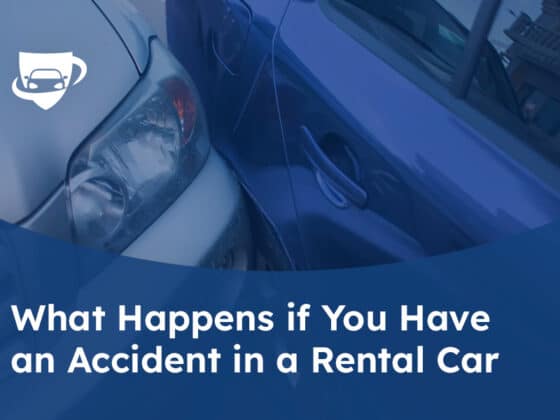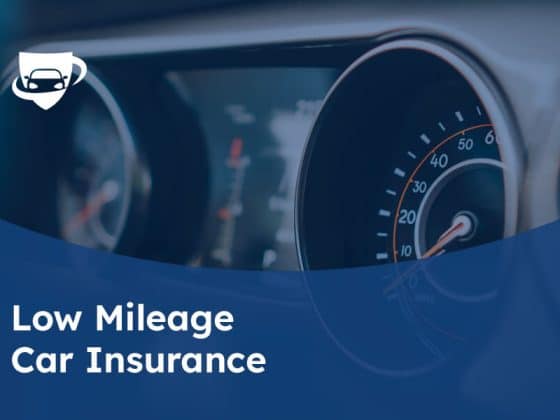Rental car insurance is, simply put, coverage for a vehicle that you are renting. It’s sold either by a rental car company or by an insurance provider. The question many people ask themselves is, Do I really need to buy insurance from a rental agency if I already have auto insurance? In most cases the answer is no, meaning your existing policy fully protects you.
However, there are circumstances where extending your insurance makes sense. To help you navigate these scenarios, this article covers all the possible situations where you might or might not need car rental insurance, along with the different coverage plans and the best and the most affordable ways to get them.
What Does My Regular Car Insurance Cover?
This depends on your current auto insurance plan. Here are the most common types of coverage that you can purchase from any insurer:
Liability
This is the basic option required by law in most US states. It pays for any property damage and bodily injury you caused to others in an at-fault accident. It extends to a rented vehicle too.
Collision
This option provides funds to repair or replace your car if it was damaged in a covered accident. It covers almost any vehicle that you’re driving, meaning it provides auto insurance for a rental car. It is limited to the actual cash value of the damaged vehicle (the value of your car in the used auto market at the time of the crash). Additionally, it requires a deductible.
Comprehensive
This coverage protects your vehicle up to its actual cash value from various perils, such as theft, a tree fall, flood, hail, animals, fire, a storm, and vandalism. It also extends to rental car insurance coverage, and it may or may not have a deductible.
Medical Payments (Med Pay) and Personal Injury Protection (PIP)
These two types of coverage pay the medical bills and funeral expenses of the individuals covered by a policy (policyholders, family members, and passengers). It does not matter who is responsible for the accident. The difference is that PIP covers medical expenses along with other losses, such as wages, while Med Pay covers only the cost of health payments. Both types of coverage follow a driver in whichever vehicle they are using, meaning you won’t need supplementary rental car coverage.
Underinsured/ Uninsured Motorist
This option provides protection if you are hit by a driver whose liability limits are too low to pay expenses, or they’re nonexistent. This coverage also follows the driver.
Additional Types of Insurance You May Have
Health Insurance
Even if you did not purchase Med Pay or PIP with your auto insurance, your health insurance could help. However, some health insurance policies exclude any vehicle-related accidents, so check with your medical insurance provider.
Homeowners/Renters Insurance
If your homeowners or renters policy includes personal property coverage, your possessions are protected, even if they’re on the road. This means any belongings damaged, destroyed, or lost in a car accident will be covered.
Credit Card Insurance
Major credit card companies provide rental car insurance if you pay with their card. The type of insurance is LWD (more on that later), which functions as collision coverage. You must decline the same kind of protection from the rental company if you prefer the credit card insurance. It’s mandatory to have liability insurance in most US states, meaning you will have to purchase it if you don’t have car insurance already.
Rental Car Insurance Options and When You Need Them
There are several types of rental car insurance coverage, which are rather similar to the regular options sold by insurance companies. Their primary purpose is to extend your limits if they are too low or to provide coverage if you didn’t purchase any.
Additionally, this coverage is quite handy if you filed a claim recently, since the second claim on your standard policy will cause your premium to skyrocket. However, if you file a claim on a rental car policy, your rate will stay the same. Here are the most common options car rental companies will offer:
Liability Insurance Supplement
What it offers – Rental car liability insurance, which pays the expenses from any physical injuries and property damage you caused. It provides significantly higher limits than your regular insurance, up to $1 million.
When do you need it – If you have car insurance, you certainly have some liability limits. You should purchase this if you think your limits are insufficient or if you don’t have auto insurance at all. However, if you find your regular liability limits are too low, it is perhaps better to increase them instead of purchasing the coverage from a rental car company.
Collision Damage Waiver (CDW) or Loss Damage Waiver (LDW)
What it offers – Although not technically for when you rent a car, this insurance coverage serves as a waiver of responsibility. Essentially, if something happens to a rented vehicle, the rental car company won’t come after you. CDW functions as collision coverage, while LDW works as comprehensive coverage. This waiver usually excludes protection for damage caused by driving on unpaved roads or speeding.
When do you need it – You should consider getting these protection plans if you didn’t purchase them with your regular insurance or if your limits are inadequate. Neither collision nor comprehensive coverage is mandatory in most states, meaning you can drive without them, but you will have to pay for damages out of your pocket.
Furthermore, you will want car rental insurance that covers you in case a rental company charges you for the “loss of use” of their rental car, which is the amount of income they would generate for the time their vehicle was in a repair shop. Even if you have Collision or Comprehensive coverage, it won’t pay for this. That’s why it pays to study your rental contract carefully. Although it does cost extra, getting full coverage from your rental car insurance may protect you in these circumstances.
Personal Accident Insurance (PAI)
What it covers – This option works similarly to PIP or Med Pay insurance. It includes the medical expenses and death benefits of the driver and other insured passengers. This coverage applies whether or not you caused the accident.
When do you need it – You don’t need this coverage if you have PIP or Med Pay and your limits are adequate. Additionally, your health insurance may protect you in these circumstances. However, your medical insurance might exclude car crash–related payments. It is always smart to check with your health and auto insurance providers to learn the exact type of coverage you have before purchasing insurance for rental cars.
Personal Effects Coverage
What it covers – This option reimburses any stolen or damaged property in a vehicle you’re driving. You have a choice of either listing each item separately or selecting a limit for all of them.
When do you need it – Your homeowners or renters policy usually has a personal property limit, which covers your belongings even if they are not in your home. Moreover, some car insurance companies offer protection for personal possessions on their car insurance policies.
Click to find out what happens if you have an accident in a rental car.
Where to Buy the Best Rental Car Insurance
If you know you need to buy insurance for a rental car, there are three ways to do it:
- You can buy it from a third-party insurer. This is perhaps the ideal course of action, since the price is the lowest, and the coverage tends to be the most extensive. If you already have annual auto insurance, contact your provider to increase your limits or extend your coverage plan. If you do not, you can profit from studying a few car insurance reviews. They’ll help you determine the best option for your needs.
- You can buy rental car insurance online from a comparison website such as AmericanCarRental. This way, you can contrast different insurance plans and their prices and find the right one for you. Many companies will bundle full insurance with their more expensive offers. This route is also usually cheaper than buying additional insurance “over the counter” at a rental company.
- You can purchase it in-person or online from a rental company when you’re picking your car. Getting auto insurance for a rental car this way is perhaps the most convenient option, but it’s also the most expensive. The advantage is that you won’t have to pay the rental company directly in case of an accident and then wait to get reimbursed from an insurance company. Instead, the renter will charge the insurer directly. Look for a bundled insurance option to get the lowest price.
Cost of Rental Car Insurance
Insurance for rental cars depends on the coverage you want to purchase and the car you’re renting, but it’s quite inexpensive on average. Check the table below for more details:
What’s the difference between rental car insurance and rental car reimbursement coverage?
These two types of car rental insurance are often confused, although they are completely different protection plans. Rental car insurance is there to cover you and the vehicle you are renting. It is provided either by your regular auto insurance policy or by a special insurance plan from a rental car company.
Rental Car Reimbursement, on the other hand, is an add-on protection plan that compensates you for the money you’ve spent on a rented vehicle while you are waiting for your regular car to be repaired. Many companies, like Safeco and Nationwide offer this additional coverage.
Is rental car insurance worth it in the end?
It only pays off if you are in one of these three situations:
- You do not already have the coverage the rental company offers.
- You do have the coverage the rental company offers, but your limits are too low. For instance, your collision limit is $10,000, but a car you are renting is worth $50,000.
- You do have the coverage, and the limits are adequate, but you do not want to risk making a claim and hiking your premium. This is especially useful if you’ve made a claim recently.
These are the only circumstances in which looking for extra car rental insurance makes sense. However, in our research, we found that rental car companies frequently include full insurance in their offers. It is very likely that by shopping around you will find a cheap rental car option with complete coverage.
Often, you may not be sure what your insurance policy exactly covers, and clerks at a rental car company will do their best to present rental car insurance options as a must-have. It’s wiser, instead of taking their word for granted, to call your insurance agent and see what kind of protection you have.
If you still feel that your coverage is insufficient, then extending your limits with your regular insurance provider—like Geico, State Farm, or Progressive—is the ideal choice in most situations. Choosing the insurance offered by the rental company makes sense only if you do not have car insurance already, it comes bundled at a minimal extra cost, or if you have submitted a claim recently and don’t want to risk your premium rising.



